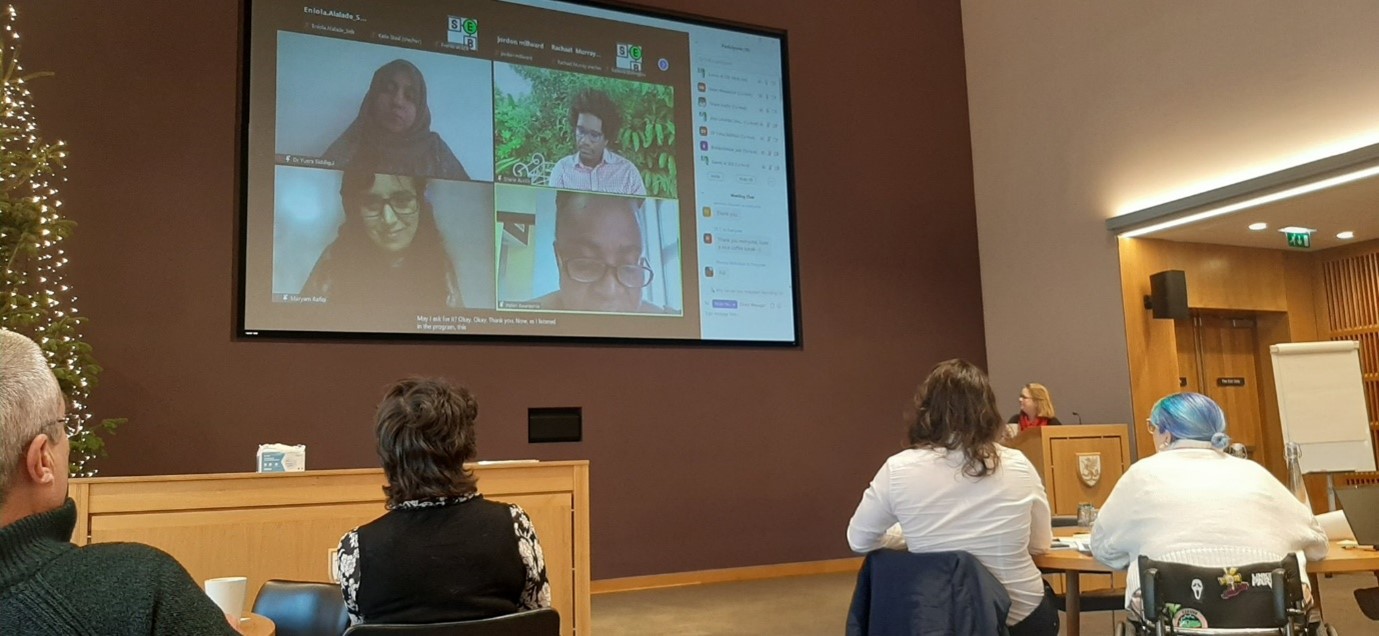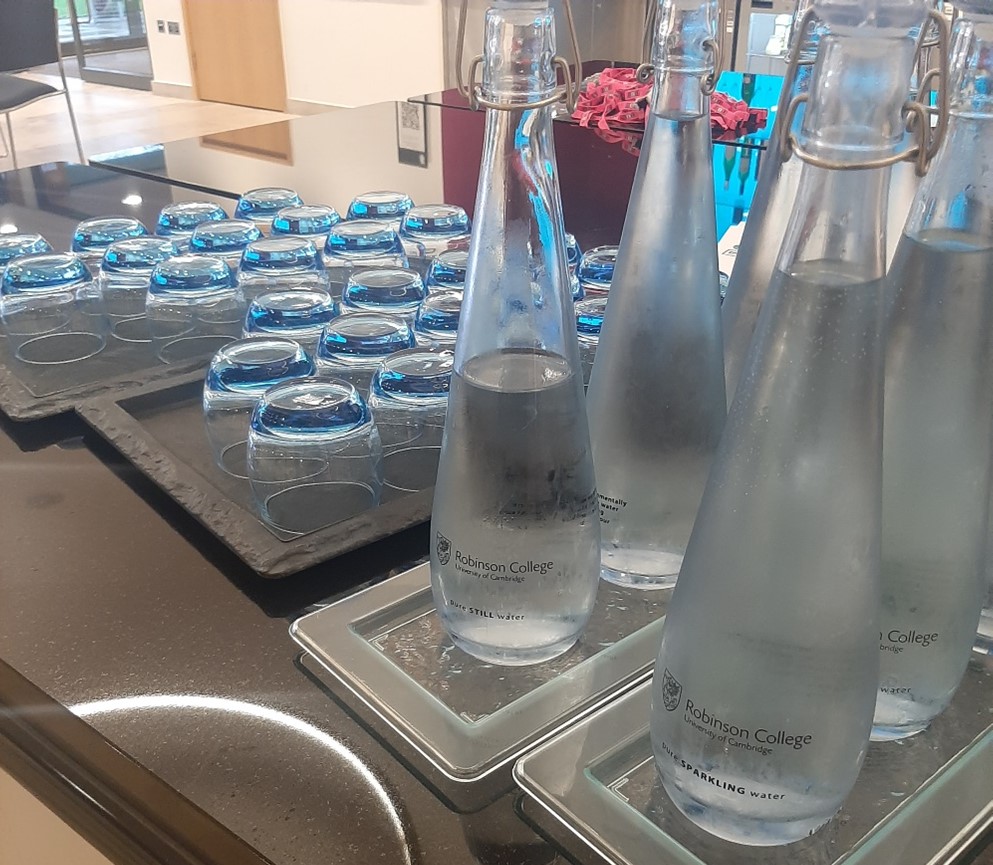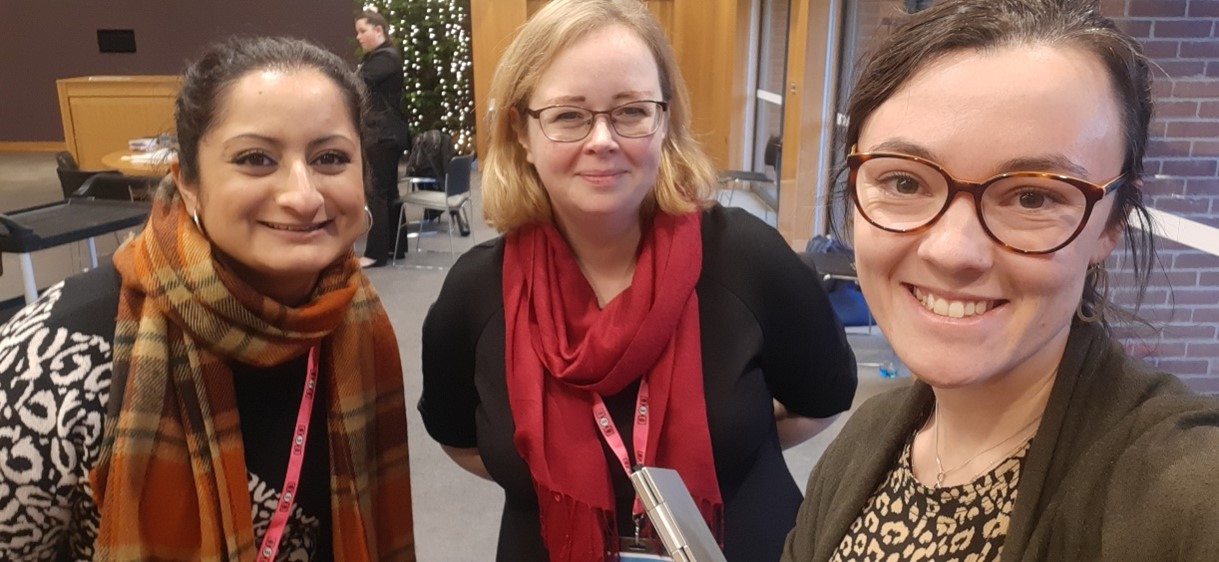8 March 2023
By Catherine Mansfield
The symposium ‘Decolonising and Diversifying Biosciences Education’ took place from 19-20 December 2022 at Robinson College, Cambridge. This meeting was organised by Dr Catherine Mansfield, Dr Katharine Hubbard, Dr Tina Joshi and Isaiah Ting, with funding and support from the Society for Experimental Biology. The Company of Biologists’ Sustainable Conferencing Grants and Scientific Meeting Grants were instrumental in allowing us to successfully run the symposium in a fully hybrid manner, and allowed us to put inclusivity and sustainability at the forefront of the meeting’s organisation.

The symposium took place over two days, with the first afternoon focusing on the theme ‘Why do we need to Diversify and Decolonise?’. We began with a workshop focusing on what decolonisation and diversification mean for us as individuals and educators, and with a thought-provoking keynote talk from Professor Jason Arday on Racial Inequality and Social Justice in Higher Education. The Scientific Meeting Grant enabled us to provide 10 bursaries to students, early-career delegates and delegates from under-represented backgrounds to support attendance online or in-person and it was great to welcome students, including undergraduate speakers, to the symposium.

The grant from The Company of Biologists’ Fund for Innovations in Sustainable Conferencing Initiative allowed us to facilitate a fully hybrid event, and we welcomed over 70 delegates from all over the world (from as far afield as Australia!), with ~25 of these being fully virtual delegates. The funding allowed us to ensure specialist AV support from Robinson College to manage the hybrid event and meant we could ensure meaningful interactions between remote and in-person delegates and speakers, rather than simply live-streaming events. Running the event in a fully hybrid manner was definitely a little nerve-wracking at times, but we’re really glad that this was possible, making the meeting more sustainable and inclusive.
Ensuring that the symposium took a Global perspective was really important to us as organisers, and we were thrilled to be able to include a virtual panel discussion on the second day of the symposium, focusing on Global Perspectives on Bioscience Education with speakers from the West Indies, Nigeria and Morocco sharing their perspectives. We discussed support and collaboration in Biosciences teaching between the Global North and South, as well as being able to address questions from both online and in-person delegates.
The second day of the meeting also involved a number of parallel sessions and talks exploring excellent work that was being undertaken, both in the UK and further afield, with regard to Diversifying and Decolonising Biosciences Education. We finished the day focusing on the theme of ‘Taking Action to make Biosciences Education more Inclusive’ – this included talks on removing awarding gaps and equality, diversity and inclusion within the new QAA Subject Benchmark Statement for Biosciences.

Applying for and receiving funding relating to sustainable conferencing from The Company of Biologists encouraged us to put this at the forefront of our planning and organising for this symposium. We chose Cambridge as our venue primarily due to relatively good access by public transport and we encouraged all speakers and in-person delegates to travel by train, which the vast majority did. Where taxis were used to travel back to the station at the end of the meeting, we were able to organise taxi sharing to ensure these were used as efficiently and sustainably as possible. Robinson College provided an ideal, accessible venue for the symposium, something that was very important to us as organisers. We also worked with the Robinson Events team to ensure the event was as sustainable as possible; no single use plastics were used for the meeting, and a local/sustainable menu was devised that included an excellent meat-free symposium dinner. We also reduced the carbon footprint of the meeting through not printing abstract booklets and reusing SEB material such as name badges and signage where possible. Abstract booklets, virtual posters and discussion were hosted online on a Discourse site, kindly set up by Lucy Tallents at Verdant Learn – this also contributed to a more inclusive and improved experience, particularly for online delegates.
A big thank you to The Company of Biologists for the financial support for this meeting and enabling us to put inclusivity at the heart of the event.








You must be logged in to post a comment.